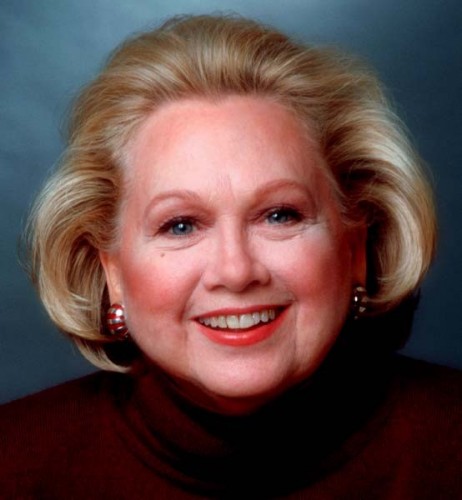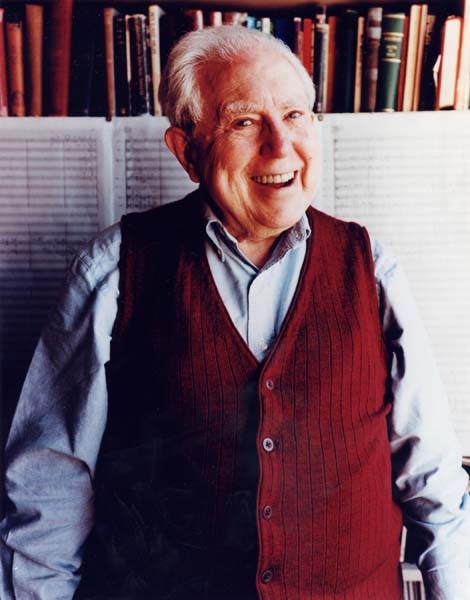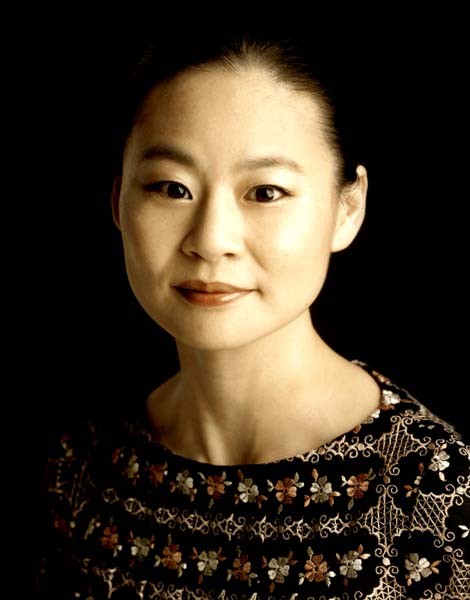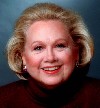Magnificent Mahler and Barbara Cook Scintillates At Tanglewood
A Truly Festive Tanglewood Music Festival
By: Charles Giuliano - Jul 15, 2008
What a difference a day makes during the summer long run of the Tanglewood Music Festival in the bucolic Berkshires. Weather permitting there is no greater delight than joining friends for a picnic on the lawn. You are too far away to see the stage but the music is conveyed by enormous speakers and there are projected video images along the back edge of the roof that overhangs the Koussevitzky Shed.
On Friday evening we planned to join friends for an all Beethoven program. But it was spritzy and we nudged it up to Saturday and Mahler's richly textured and emotionally insightful Symphony Number 2 in C minor conducted by Bernard Haitink. Last night, Monday, we returned for a very different experience in the intimate setting of Ozawa Hall for a performance by the cabaret singer, Barbara Cook.
From now through Labor Day weekend when the season ends with the annual Tanglewood Jazz Festival, a rather recent and quite wonderful tradition, there is a compelling reason to visit the Lenox campus on a daily basis. As a colleague expressed it there are many Tanglewoods. The person seated next to you in the Shed, or the adjoining blanket on the lawn, may well be enjoying the same performance from a quite different perspective. The audience is composed of those who are truly knowledgeable about classical music as well as more casual appreciators primarily there for the magnificent ambiance. As a friend put it to "Experience the magic of Tanglewood."
As the season progresses there is a constant shifting of focus and textures from the greatest orchestral works like the ambitious presentation of Mahler to the most softly understated and intimate moments of chamber music, a survey of the 100 year-old composer, Elliot Carter, to be presented next week, or the most enjoyable performance by Barbara Cook last night.
During Cook's 90 minute set she introduced each new song with charmingly anecdotal material. In addition to having a magnificent, soft, sweet and seductive voice she is also a veteran actress. Cook brought all of her skills together in a heady mix that utterly intoxicated the audience.
To prepare for such an occasion Cook described how for months there are piles of arrangements strewn over the dining room table. She agonizes over the material and the daunting task of selecting her very favorite songs. Extending that image the performance evoked the feeling that we have moved from the dining area to the living room. Somehow the setting of Ozawa Hall morphed into her parlor as we got to meet her friends. Including her best friend, Stephen Sondheim, who "Most of the time is just my friend Stephen. We talk about the aches and pains of aging. But when I am working on one of his new songs he becomes Stephen Sondheim. He is one of our greatest living treasures like Gershwin and Jerome Kern."
As the evening progressed it became clear why she prefers Sondheim who was well represented in her performance. Even though she selected works by the great composers of theatre and films- George and Ira Gershwin, Irving Berlin, Rodgers and Hammerstein, Rodgers and Hart- often it was more obscure songs or the ones which were not always the best known hits in "Oklahoma," "South Pacific" or a Disney film like "Song of the South."
The material lent itself to lyrics that convey compellingly personal and emotional stories. There was an emphasis on the dramatic and poignant. Now in her 80s, and still in full command, Cook presented an evening that appears to summarize her personal experiences. There was the evocation of a life richly lived and conveyed in wonderfully poetic song.
Introducing the trio which performed with her Cook said "I am so lucky to be on stage with these guys." With Lee Musiker, piano, Peter Donovan, string bass, and James Saporito, drums they were perfectly understated in catching all of ever shifting nuances of mood and tempo. The piano of Muskier led her gently through the most tenderly rendered ballads. Then they could kick up and really swing through more up-tempo numbers. She even did a bit of scat during a Ray Charles number. The set proceeded with constantly changing pace and textures. After taking us through the most poignant aspects of romance she could be fun and lively romping through classic show tunes.
There were also hints that this was a rare and special evening. The woman is, after all, now 80. While she moved about gracefully Cook was full figured but neatly attired in a black pants suit with a flowing jacket accented by a large silver necklace. She seemed to have a cold and at one point a person in front reached up offering a package of tissues. Taking one graciously she rubbed at an eye that was bothering her. Returning the tissues she commented that "I need a lot more than this." But what a trouper as she got back to the show with just the barest hint of effort.
It was such a warm and evocative evening that it is impossible to point to individual highlights. Every song had its glorious insights and gifts. Because there was relatively little familiar material, or greatest hits, we had to listen attentively. Perhaps that was her strategy which appeared to work its charm.
Introducing a song she stated "There is so much talk about the Great American Songbook. It is interesting that so many of those songs were written by immigrants like Irving Berlin. I don't know much about immigration. But if they can write great songs I think we should let them in." It evoked a round of applause from the audience. She then sang a selection from his show "Annie Get Your Gun."
Cook talked about growing up in Georgia. When she was a kid she won a talent show at the Roxy. The prize came with an invitation to join a traveling company. She was underage and needed parental permission. There was another problem, it was a burlesque show, and a couple of the women were "topless." But she was too short for that and instead was taken on as a tap dancer. She spoke of that risqué experience with humor and nostalgia conjuring a great era with wonderful artists and performers. It gave us a sense of her roots and a life in the theater that led to those many Broadway triumphs.
An evening with a great lady of song, a true legend of her generation, ended all too quickly. The audience was clearly disappointed. But they were rewarded when she returned with a poignant encore. Setting aside the mike she was accompanied by piano as we were treated to the pure tone of her ballad filling Ozawa Hall. Reaching out to the audience she conveyed that "We'll Be Together Again." What a magnificent moment.
As indeed was the evening of Mahler just a couple of days before. It was the second time that we had heard the Mahler Second at Tanglewood in the past couple of years. So we anticipated its shifting elements of the funereal and genre, as well as the soprano solo and the final shattering choral work. Once again we noted the French horns and trumpets parting to play from the wings. This evoked the far away and a sense of distance. The piece, which was written at the same time as the First Symphony, conveys the sense of the young composer when he was in his 30s revealing the romantic notions of his personal life in the music. After an early performance, when he was awarded many bouquets of flowers, it is said that Mahler languished in his room simulating his own funeral. This poetic morbidity got conveyed into the Second Symphony with a funeral march and then the great final resurrection. It was exhilarating to experience the full power and impact of a great work in a very precise rendering.
There is more Mahler scheduled. On Friday, July 18, the Mahler Symphony Number 1 is on a program with Harbison's Symphony Number 5. There will be a change as James Levine was to conduct. On Saturday, Midori will be the soloist in a program conducted by Leonard Slatkin. And, on Sunday, Shi-Yeon Sung is guest conductor with Garrick Ohlsson on piano. The much anticipated "2008 Festival of Contemporary Music Elliot Carter Centennial Celebration" starts on Sunday, July 20 and extends through Thursday, July 24.




